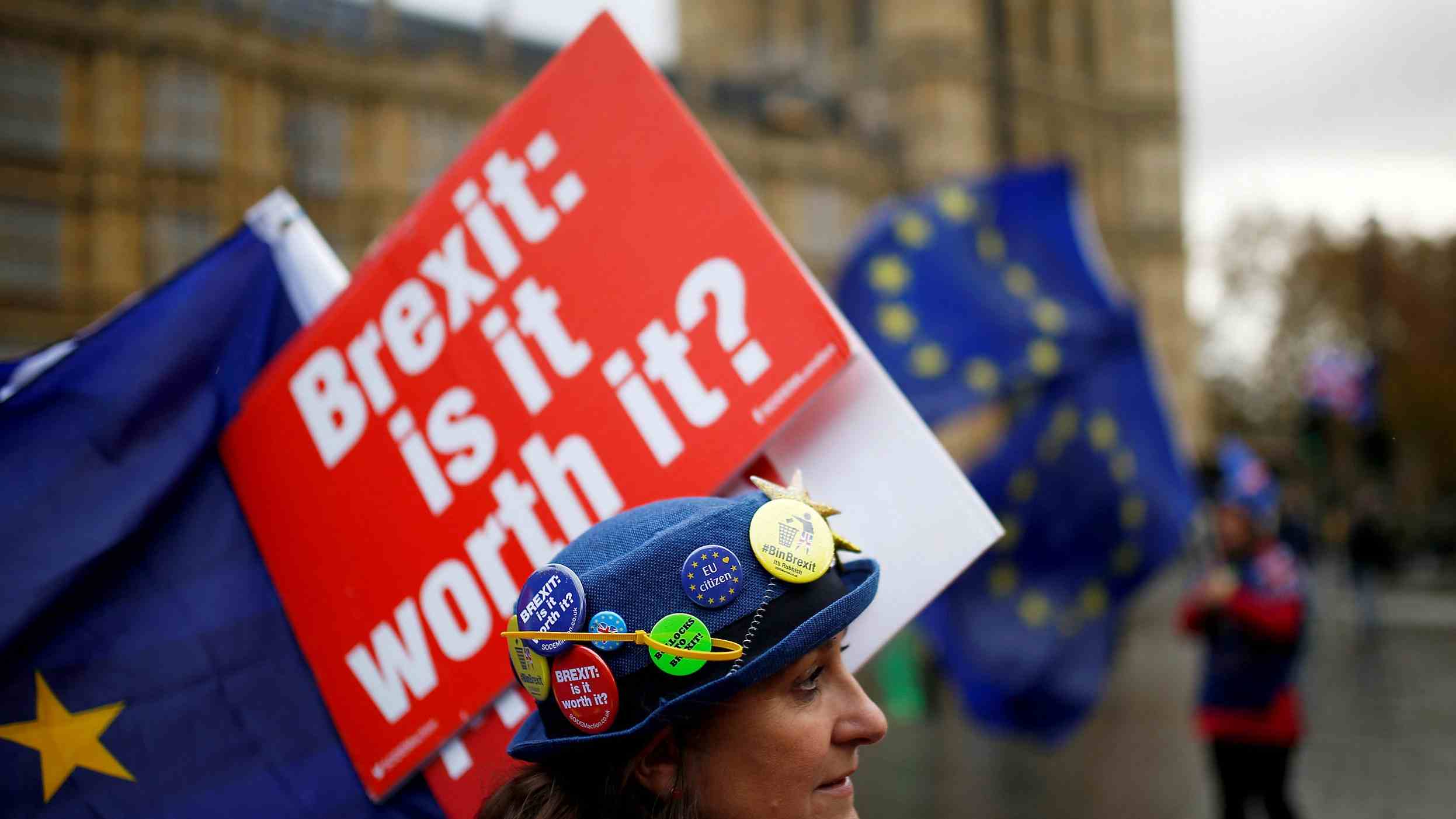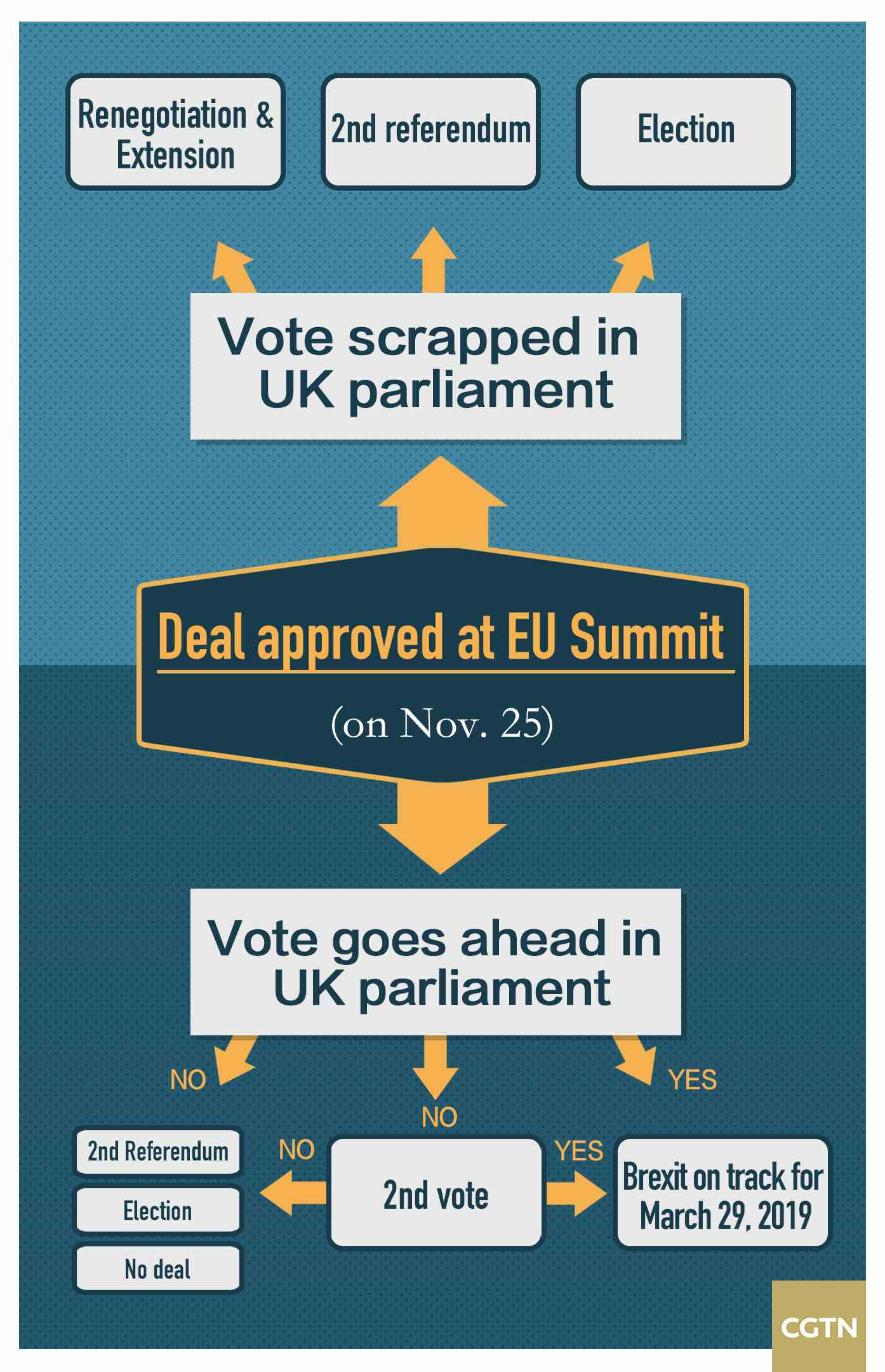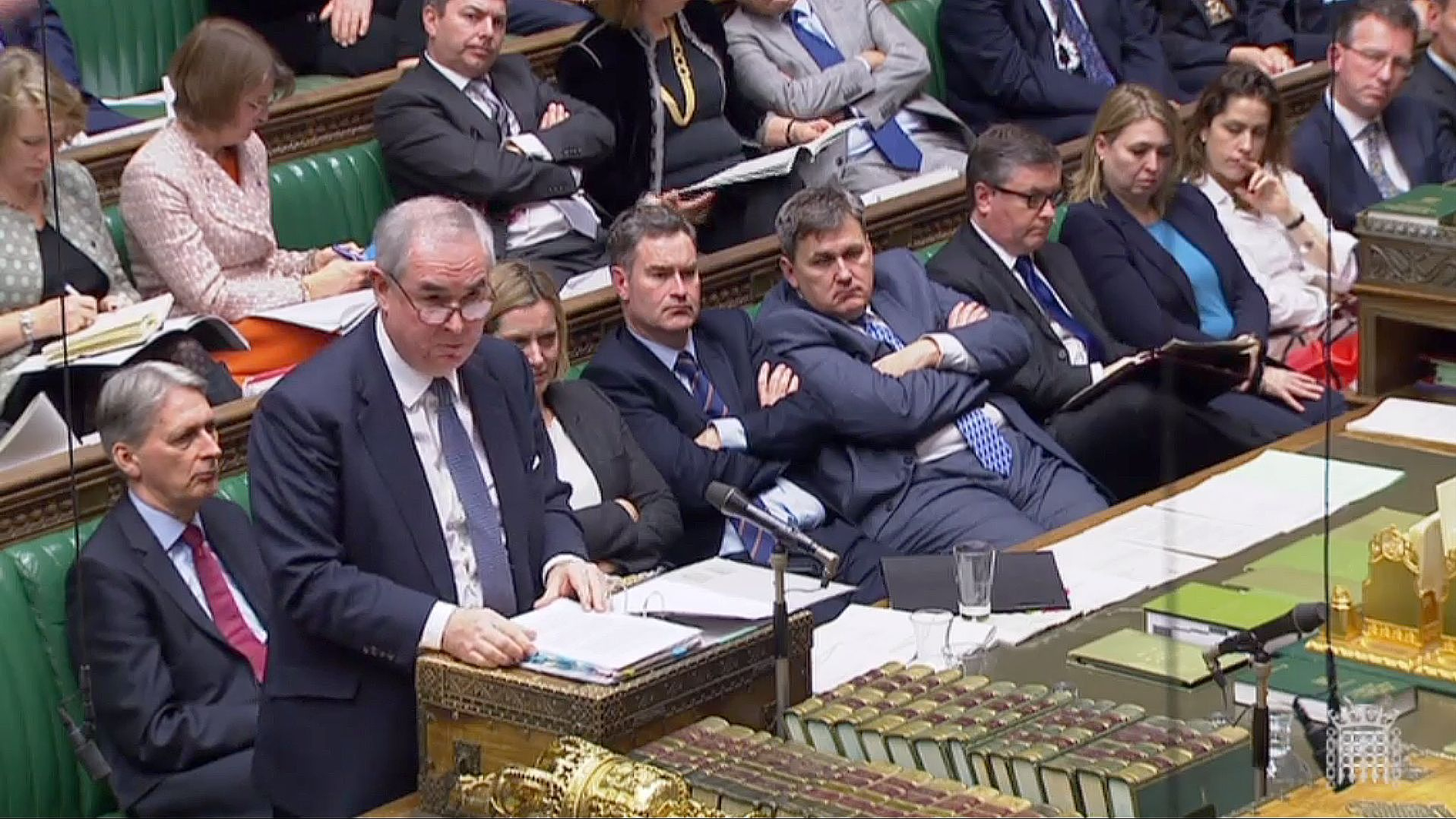
Politics
10:53, 04-Dec-2018
Brexit debate starts with 'contempt' threat over government
Updated
10:48, 07-Dec-2018
CGTN

British Prime Minister Theresa May will urge parliament to back her Brexit deal on Tuesday at the start of a high-stakes five-day debate that could determine her fate and whether Britain leaves the European Union without a deal.
May's plan to keep close ties with the EU after leaving has been criticized by Brexit supporters and opponents alike, leaving her struggling to secure parliament's approval in a vote that will follow the debate on December 11.
Read more: Seven Brexit scenarios
If, against the odds, she wins the vote, Britain will leave the EU on March 29 under terms negotiated with Brussels – the country's biggest shift in trade and foreign policy for more than 40 years.
If she loses, May could call for a second vote on the deal. But defeat would increase the chances of Britain leaving without a deal – a prospect that could mean chaos for Britain's economy and businesses – and put May under fierce pressure to resign. The opposition Labour Party has said it will call for a vote of no confidence in the government if the deal fails to pass.
Defeat could also make it more likely that Britain holds a second referendum or lead to Brexit not happening.

May, 62, has toured Britain and television studios, spent hours being grilled in parliament and invited lawmakers to her Downing Street residence to try to win over her many critics.
But the deal, sealed in Brussels last month, has united critics at both ends of the political spectrum: euroskeptics say it will make Britain a vassal state while EU supporters – expressing the same idea though with different language – say the country will become a rule taker.
Her allies in parliament, the Northern Irish Democratic Unionist Party which props up her government, have also rejected the deal and opposition parties say they cannot back it.
May is pressing on nonetheless.
"The British people want us to get on with a deal that honors the referendum and allows us to come together again as a country, whichever way we voted," she will tell lawmakers on Tuesday, according to excerpts of her speech. "This is the deal that delivers for the British people."

Britain's attorney general Geoffrey Cox delivers a statement on the government's legal position on the Withdrawal Agreement in the House of Commons, London, November 28, 2018. /VCG Photo
Britain's attorney general Geoffrey Cox delivers a statement on the government's legal position on the Withdrawal Agreement in the House of Commons, London, November 28, 2018. /VCG Photo
Few in the House of Commons, the lower house of parliament, seemed convinced so far, and a move to present the government's legal advice to parliament seemed to backfire on Monday.
After a complaint presented by a group of cross-party lawmakers, parliamentary speaker John Bercow said he believed it could be argued that a contempt had been committed because of the failure to release the full legal advice. The issue would be taken up again in parliament on Tuesday, said Bercow.
At a rowdy session of parliament, attorney general Geoffrey Cox outlined the legal advice he had given to the government, including over a "backstop" arrangement to prevent the return of a hard border between Northern Ireland and EU member state Ireland if a future UK-EU trading deal is not reached in time.
But his words did little to soothe some of the deal's most caustic critics, where many Brexit supporters said the so-called backstop for Northern Ireland risked tying Britain into the EU's customs union indefinitely.
"The legal summary document is worse than we feared: the backstop customs union is indefinite, the UK would be a rule taker and the European Court (of Justice) is in charge of our destiny, rather than the sovereign UK parliament," former Brexit minister David Davis said. "This is not Brexit."
The contempt proceedings against the government could potentially result in one or more ministers being suspended or expelled from the House of Commons.
Source(s): Reuters

SITEMAP
Copyright © 2018 CGTN. Beijing ICP prepared NO.16065310-3
Copyright © 2018 CGTN. Beijing ICP prepared NO.16065310-3